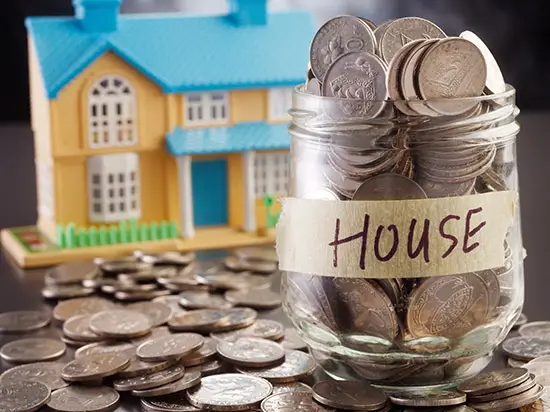Mortgage Downpayments

Every mortgage loan has a different set of criteria with regard to the amount of money the lender will need as a downpayment. The downpayment amount can vary significantly, so it's extremely important that you're getting the right mortgage product for your particular financial situation.
What is a Mortgage Downpayment?
When someone purchases a new home, they are typically required to pay a portion of the total loan amount at the time they purchase the property, and then pay the balance of the loan over the course of a pre-determined number of years. This initial investment in the loan is called a down payment. Today, buyers are typically required to put down 20% of the price of the home as a down payment. Depending on the total amount you are looking to borrow, 20% can be an enormous sum of money and, quite often, a seemingly unattainable goal for many of us. This amount of money puts homeownership out of reach for most people trying to save up enough money to purchase a home.
Until recently, perspective homebuyers would have to utilize governmental programs, such as the Federal Housing Authority (FHA) to obtain a mortgage for less than 10% down. Fortunately, a growing number of lenders are writing mortgage loans for far less than the historical 20% requirement, and even less than 10%! However, a lower down payment could affect other factors such as:
- Whether you will be required to pay for Private Mortgage Insurance;
- What type of loan is the right one for you; and
- Your interest rate.
Private Mortgage Insurance (PMI)
You will be required to get Private Mortgage Insurance if you pay less than 20% of the cost of your home for your down payment. This insurance serves to protect your lender in case you were to default on your mortgage payments. The cost of this insurance varies according to the bank you are using, but can range from 0.15% to 2.5% of the amount of the loan.
If you think you may need to pay less than 20% when purchasing your home, here is an example of how your PMI will be paid:
You buy your house for $160,000 and make a 15% down payment. The amount that you would need to borrow from the lender would be $136,000. If your annual premium for a PMI is 0.5%, the insurer would multiply the loan amount by 0.005. Your annual premium that you would pay for your PMI (as a result of paying less than 20% as your down payment) would be $680, which is paid monthly at $56.67.
Note: After reaching an 80% loan-to-value ratio, inform your lender that you need to discontinue your PMI premiums. You will be told at your closing exactly how long it will take to reach that 80% so that you can be aware of when your PMI should be cancelled.
Types of Loans
When deciding on which type of loan is best for you, you have the option of fixed-rate or adjustable-rate mortgage.
- Fixed-rate mortgage - This home loan has a predetermined fixed interest rate and it does not change for the entire term of the loan.
- Adjustable-rate mortgage (ARM) - This mortgage or equity loan has an interest rate and monthly payments that may change during the term of the loan. These changes would be based on a fluctuating index. Most ARMs have a rate cap in place so that the interest rate can only change up to a certain point during the initial adjustment period and the entire life of the loan.
Interest Rates
Your interest rate is also known as the cost you pay for the ability to use your loan. It is paid over a set period of time and can vary depending on how much you put down on your home. You will typically get a lower interest rate from your lender if you put more down on your home in the beginning.
HUD-Approved Housing Counseling
If you cannot afford the 20% and aren't exactly sure what you are going to be able to afford, don't worry just yet. There is still potential for you to purchase a home. What you need to do at this point, is contact a HUD Approved Housing Counseling Agency that specializes in home ownership. They will be able to help assess your situation and see if you qualify for special programs to help you towards your goal of homeownership. Click here to visit our HUD-Approved Housing Counseling page.
